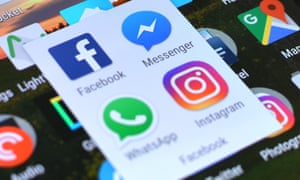WhatsApp, a Meta-owned messaging app, is apparently working on additional features for Android, iOS, and PC users. These features will enhance the quality of the chat experience and provide users with a more participatory platform. Some of these capabilities are already being rolled out to WhatsApp beta program subscribers.
WABetaInfo, a WhatsApp feature tracker, discovered these forthcoming additions.
Check out the 10 upcoming WhatsApp features:
WhatsApp Communities feature
According to WABetaInfo, WhatsApp is planning to launch a new Communities feature for Group administrators. The feature is expected to provide Group administrators with more control. Admins can use this capability to create Groups within Groups. The Sub-Groups will also be encrypted end-to-end. It will be quite similar to how numerous channels are organised within a Discord group.
New chat feature for group admins
WhatsApp is developing a new chat function for group administrators that will allow them to remove messages submitted by other group members. The aforementioned feature will be included in a future release. With this future functionality, WhatsApp group managers will be able to erase anyone’s incorrect message without their permission. Admins will have better control over group chats thanks to this feature. When an admin deletes a message in a group chat, users will see a notification that states ‘This was deleted by an admin.’
2-step verification for WhatsApp web/desktop
WhatsApp is apparently going to implement two-step authentication for desktop and online users in order to increase account security. The two-step verification function is an optional feature that protects users’ WhatsApp accounts against illegal access. When a user logs into their WhatsApp account, they must enter a two-step verification PIN. For the time being, it is only available on the WhatsApp mobile app.
Message reactions like Instagram and Facebook Messenger
WhatsApp users will soon be able to receive message reactions similar to those found on Instagram and Facebook Messenger. Users can respond to messages using this functionality. To use the message reaction, users must first tap and hold the message to which they wish to respond, then drag their finger to the suitable emoji. This feature allows users to view who responded to incoming and outgoing messages in a group.
New animated emojis
According to reports, WhatsApp is working on new animation emojis for Android and Apple iOS users. For the time being, the app just offers a single animated red heart emoji to its users. When a red heart emoji is sent to a user, it looks to be beating. According to a new report by WABetaInfo, the instant-messaging network is trying to bring the dynamic effect to more emojis.
Search shortcut in contact information section
According to reports, the Meta-owned app is working on a new search feature for the contact information tab. The new search shortcut will be added next to the video call icon and will also be visible in the group information area. WABetaInfo, a WhatsApp feature tracker, discovered the new search message shortcut. Users will be able to conduct searches directly from the info page of personal contacts and group conversations using this new search message shortcut.
New interface for voice calls
WhatsApp will soon launch a new interface for group phone calls. During a group call, the platform is adding voice waveforms for all participants. The voice waves resemble those observed in voice notes. According to reports, the new interface will have a rounded grey rectangular background with the contact’s name, phone, and profile picture on top, as well as the call duration.
Restrict people who can see your WhatsApp status
WhatsApp will roll out a new security feature that will allow users to control who can view their status updates. You can manage status privacy settings with this new WhatsApp shortcut. The new shortcut will allow users to specify which users will be allowed to read their status changes. According to WABetaInfo, the new shortcut will be visible at the bottom of the screen when you tap on ‘Status.’
Preview photos and videos shared as documents
WhatsApp intends to add a new preview option for documents shared in chats. Users will be able to preview videos and photographs shared as documents in chats using the new feature. Currently, you cannot see an image or video given as a document without first opening it.
Share same photo/video in chat and status at the same time
Whatsapp is developing a new feature that will allow users to share media as their WhatApp status, as well as with individual chats or Groups in a single window. Currently, if a WhatsApp user wishes to share a single media file as a status update with many chats, they must do it individually. Users will be able to share media in chat and status at the same time with the feature.





